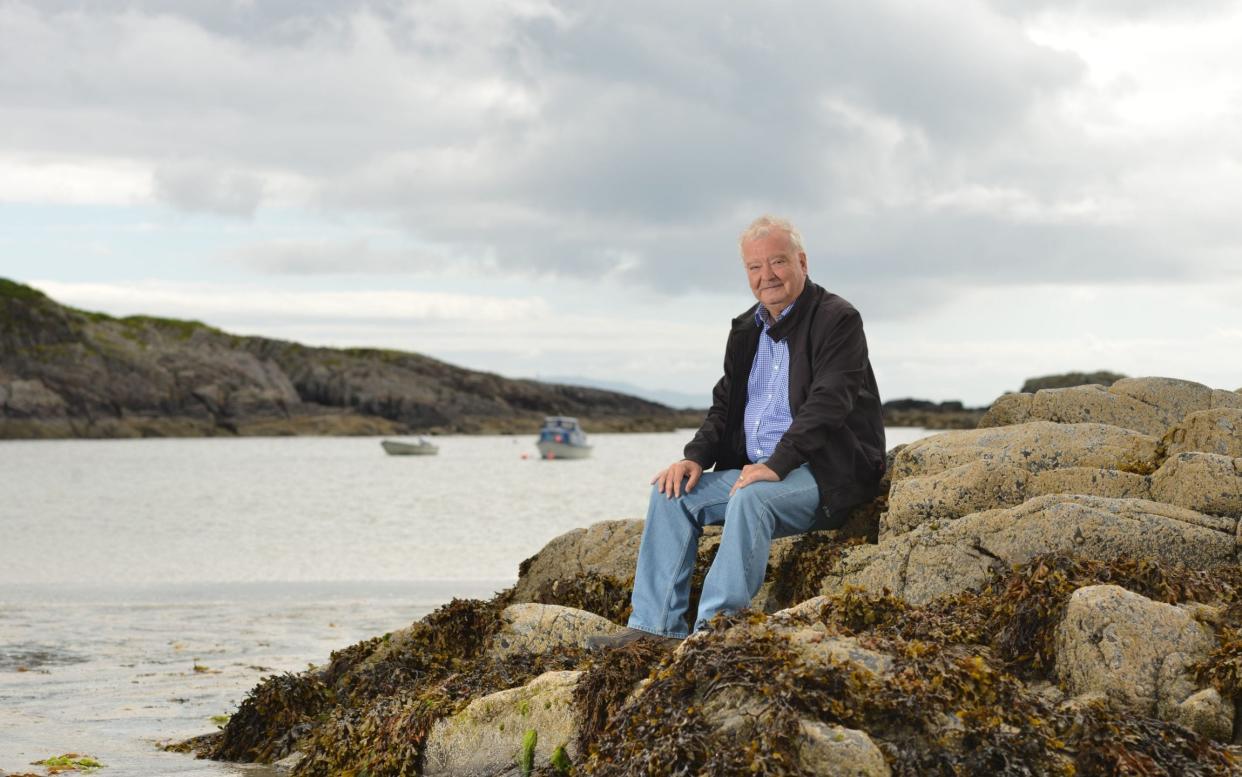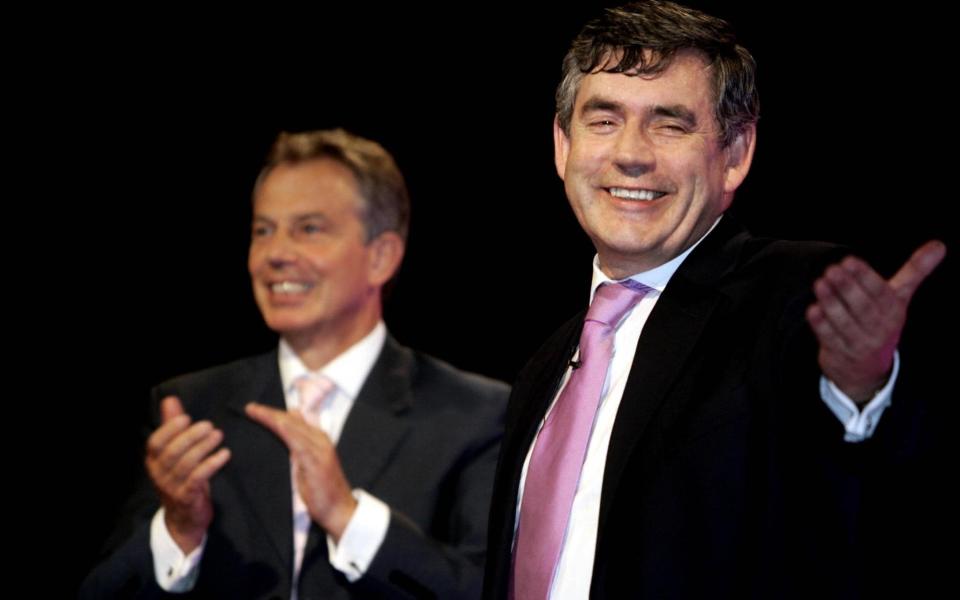SNP quango promoting 'dangerous propaganda' in schools with warped version of Scottish history

A timeline on Scottish history designed to be taught in schools has been described as “arrant propaganda” and “dangerous nonsense” by the country’s leading historian.
SNP ministers are facing calls to order the withdrawal of the 27-page document, called The Road to the Scottish Parliament, from use in classrooms over claims that it presents a warped, pro-independence and anti-English view of the nation’s past.
Sir Tom Devine, widely seen as Scotland’s preeminent historian, said criticism of the paper was “amply justified”.
Teachers have been told that the document can be used “directly in the classroom” and is part of a resource package designed by the government quango Education Scotland to “embed the key skills of political literacy in young people.”
Sir Tom said: "The piece reads like a simplistic piece of arrant propaganda, implying as it does that the development of Scottish history leads inevitably and inexorably to the climacteric establishment of the Parliament in 1999.
“This is self-evidently arrant and dangerous nonsense. I am sure, and certainly hope, that teachers will see through the absurdities and not convey such rotten history to their pupils.”

Education Scotland said on Wednesday night that it was “taking steps to review the publication” to “ensure the facts are reflected accurately” and, after being contacted by The Daily Telegraph, deleted it from its website.
In the document, there are repeated references to Scots being mistreated by the English, including a debunked myth that Sir Winston Churchill “dispatched English troops and tanks” to Glasgow in 1919 to quell unrest while locking up Scottish troops in barracks over fears they would "precipitate a major revolution". It claims “thousands of English troops remained in Scotland for many months”.
It also asserts “a resentment of English domination” in the 18th Century and states “hopes for an independent Scotland continued” after the 1707 Act of Union, even though there was no mainstream political movement for independence until the second half of the 20th Century.
The document includes 24 references to the SNP, the same number of mentions as Labour, the party that actually delivered the Scottish Parliament.

It includes a mention of the 1995 film Braveheart, stating that William Wallace had been an “inspiration to Scottish nationalists” since his death in 1305, and a reference to a pro-SNP magazine.
However, it is silent on Scotland’s major role in the British Empire or the slave trade which Sir Tom said there was a growing understanding of among historians.
He said: “All national histories are partially founded on myth, inherited belief and invention of tradition. Scotland, however, is perhaps more vulnerable than most other countries to this disease.
“The problem has also been exacerbated in Scotland by the unprecedented rise in the popularity and appeal of nationalism which, like Unionism before it, is wont to manufacture or exaggerate its own historical myths.
“But since the 1970s many of the mythologies of modern Scottish history have come under massive assault by professional scholars.
"All this is meat and drink to professional historians but spare a sympathetic thought for the school pupils, teachers, exam setters and school textbook publishers who struggle to keep up and find that what they once believed last month is now discredited and their ignorance denounced in the media."
Education Scotland states that it is independent of government. However, it remains accountable to ministers and opposition MSPs have questioned its autonomy.
Jamie Greene, education spokesman for the Scottish Tories, said it appeared the SNP was attempting to use the civil service to “rewrite history”.
He added: “If pupils only hear this skewed presentation, then they will be left hearing a view that makes the SNP solely responsible for the achievement of a Scottish Parliament.
“More worryingly, it looks as though the English are being blamed for holding back a Scottish Parliament, which is just blatantly inaccurate.
“The SNP appear to have no shame in trying to deliver a biased view of Scottish history in our classrooms and parents will be asking serious questions as to why this is occurring so blatantly.
“Serious consideration must now be given by the SNP to withdraw this paper as part of the current curriculum.”
An Education Scotland spokeswoman said the body aimed to produce “balanced materials” and that they were kept under regular review.
She added: “In this case, Education Scotland are taking steps to review the publication ‘Road to the Scottish Parliament’ to ensure the facts are reflected accurately.
“We aim to provide balanced materials to teachers to give them the confidence to deliver lessons on political literacy. This resource was designed to teach children about the events leading up to the re-establishment of the Scottish Parliament.
“The Road to the Scottish Parliament section of the You Decide resource includes a wide-ranging overview of the historical timeline and key events leading up to the re-establishment of the Scottish Parliament. It was never designed as a comprehensive history of Scotland, but rather a summary of the journey of Scotland and its people to the formation of the Scottish Parliament."
Myths and reality
The Road to the Scottish Parliament began, according to Education Scotland, in 1296 when “King Edward I of England invades Scotland”.
August 1305: A passage on William Wallace includes a reference to “English despotism”. It states: “Since his death Wallace has been an inspiration to Scottish nationalists”. However, he has also inspired non-nationalists, with his popularity rising in the nineteenth century when there was no mainstream movement for independence.
May 1707: “Hopes for an independent Scotland continued though” [after the Act of Union]. There was no mainstream movement for independence until late in the 20th Century.
January 1919: “In an event unique in British history, Winston Churchill dispatched English troops and tanks against a large demonstration in George Square on 31st January 1919.
"The event became known as The Battle of George Square. Scottish troops already present in Glasgow were locked in Maryhill Barracks for fear that they might join the demonstrators and precipitate a major revolution. Thousands of English troops remained in Scotland for many months… These events served to strengthen nationalist feelings and nationalism.”
The claim that tanks were sent in to George Square to quell a protest, which was for a shorter working week, is a myth. Military aid was requested by the Sheriff of Lanarkshire and troops were sent mainly from units based in Scotland, and by the time they arrived, the city was already returning to peace. Churchill had no role.
November 1967: “The SNP win a by-election in Hamilton… a major event in the politics of Scotland, boosting support for the SNP and pushing devolution and independence to the top of Scotland’s political agenda. The SNP had already made big advances...”
While a major milestone in the history of the SNP, Labour retook the constituency at the 1970 General Election, when the nationalists won only one seat. The party would not win a General Election in Scotland until 2015.
May 1999: “The Conservative Party failed to win a single constituency seat but managed to win 18 seats through the Additional Member System.” While true, the paper does not mention that only seven of the SNP’s 35 MSPs won in constituencies.
1 May 2003: “The Scottish Labour Party returned the largest number of MSPs and continued to form a coalition government with the Scottish Liberal Democrats.” The fact that the SNP lost eight seats, under then-leader and the current Education Secretary John Swinney, is omitted.

 Yahoo News
Yahoo News 
